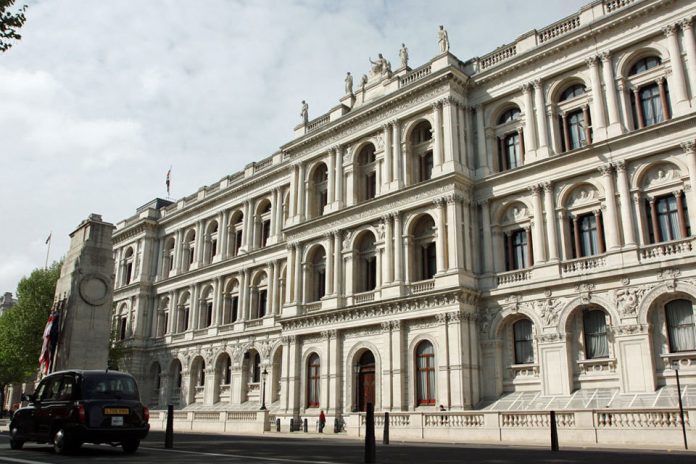This is the second article produced by the British Embassy that refutes inaccurate public statements on Hong Kong-related topics. Please see the first article here.
On 22 July 2020, the Home Secretary announced a bespoke immigration route for eligible BN(O)s from Hong Kong. The Hong Kong BN(O) Visa will allow BN(O)s and their dependants to stay in the UK for up to five years, with the right to work and study. In UK immigration jargon, this is known as ‘leave to remain’, the scheme will open to applicants on 31 January, 2021.
The UK Government’s decision to introduce the Hong Kong BN(O) Visa follows the imposition of the National Security Law (NSL) on Hong Kong by the Chinese Government in June 2020, in a clear breach of the Joint Declaration. Both the Prime Minister and Foreign Secretary made it clear on numerous occasions that if China breached Hong Kong’s high degree of autonomy the UK would respond by putting in place new visa arrangements.
Claim – The Joint Declaration provides no right or entitlement for the UK to interfere in Hong Kong beyond handover in 1997.
The Joint Declaration contains not a single word or article that confers any responsibility on the UK over Hong Kong after 1997. The UK has no sovereignty, jurisdiction or right of supervision over Hong Kong. So there is no “commitment to the people of Hong Kong” on the UK side.
23 October 2020 http://www.fmcoprc.gov.hk/eng/gsxw/t1826190.htm
Response
The UK accepts without equivocation Chinese sovereignty of Hong Kong and does not support or encourage independence. However, the Joint Declaration remains a legally binding international agreement.
In 1984 China made a legally binding commitment to the UK to ensure the rights and freedoms of the people of Hong Kong, maintain Hong Kong’s high degree of autonomy, and leave its lifestyle, social and economic systems unchanged for 50 years from 1997. The UK has the right under the Joint Declaration to hold China to this commitment.
Claim – The UK’s Hong Kong BN(O) Visa scheme is a breach of the Joint Declaration
The UK is “openly breaching its commitments and international law”. 23 July, 2020 MFA spokesperson Wang Wenbin
“The British side broke its commitments first”. 23 October, 2020 MFA spokesperson Zhao Lijian
Response
The UK has consistently fulfilled all of its obligations under the Joint Declaration. The Joint Declaration makes no mention of BN(O)s. The UK memorandum connected to the Joint Declaration is clear that BN(O) status does not confer the right of abode in the UK – that remains the case.
Claim – The Chinese may withdraw recognition of BN(O) passports
As the British side broke its commitment first, the Chinese side will consider withdrawing recognition of the BN(O) passport as valid travel documents. 23 October, 2020 MFA spokesperson Zhao Lijian
Response
The Chinese and British Governments exchanged memoranda of understanding attached to the Joint Declaration in 1984. The Chinese Government committed to “permit Chinese nationals in Hong Kong who were previously called ‘British Dependent Territories Citizens’ to use travel documents issued by the Government of the United Kingdom for the purpose of travelling to other states and regions”. Withdrawing recognition of BN(O) passports would be in direct contravention of this commitment by the Chinese Government.
Claim – The UK is manipulating international law
The UK has manipulated the rights and status of BN(O) passport holders, openly breaching its commitments and international law. 23 July, 2020 MFA spokesperson Wang Wenbin
Response
The UK has amended its own immigration rules to grant Hong Kong BN(O) Visa holders limited leave to remain in the UK. Hong Kong BN(O) status holders remain subject to immigration controls, and as such do not have the right of abode.
The limited leave to remain provides the right to work or study in the UK for those in Hong Kong who choose to retain their historic ties to the UK by taking up their BN(O) entitlement. Other than these changes, the UK has in no way altered, amended, enhanced or diminished the rights or status of BN(O) passport holders.
- A BN(O) passport does not automatically allow the holder to permanently reside in the UK;
- A BN(O) passport does not confer UK citizenship;
- A BN(O) passport holder has no recourse to public funds or government benefits;
- A BN(O) passport cannot be passed on to family members or children;
- The BN(O) scheme remains closed to new applicants since 1997.
These facts remain unchanged. The UK is acting entirely in accordance with international law.
Claim – The UK is offering residency to Hong Kong citizens
“The UK has now, in total disregard of the strong opposition of the Chinese side, offered a route for BNO passport holders to the right of abode” 23 July, 2020 Chinese Embassy in UK
Response
The UK’s immigration policy is transparent and consistent. There has been no change in the right of abode conferred on BN(O) passport holders. The new route for BN(O)soffers no automatic right to reside in the UK and holders will be subject to the same application processes for permanent residency which have always applied. The BN(O) Visa offers limited leave to remain in the UK for up to five years. Chinese mainland citizens – or citizens of any other country for that matter – who have spent 5 years continuously resident in the UK are equally entitled to apply for “settled status” after this period.
Claim – The UK is offering citizenship to Hong Kong citizens
“The UK is offering a route to BNO passport holders for citizenship in the UK” 23 July, 2020 Chinese Embassy in UK
Response
A BN(O) passport does not provide UK citizenship and there has been no change to the status of Hong Kong-based holders of a BNO passport in this regard. The pathway to UK citizenship is a clear and transparent process to which anyone – including Chinese nationals – may apply.







